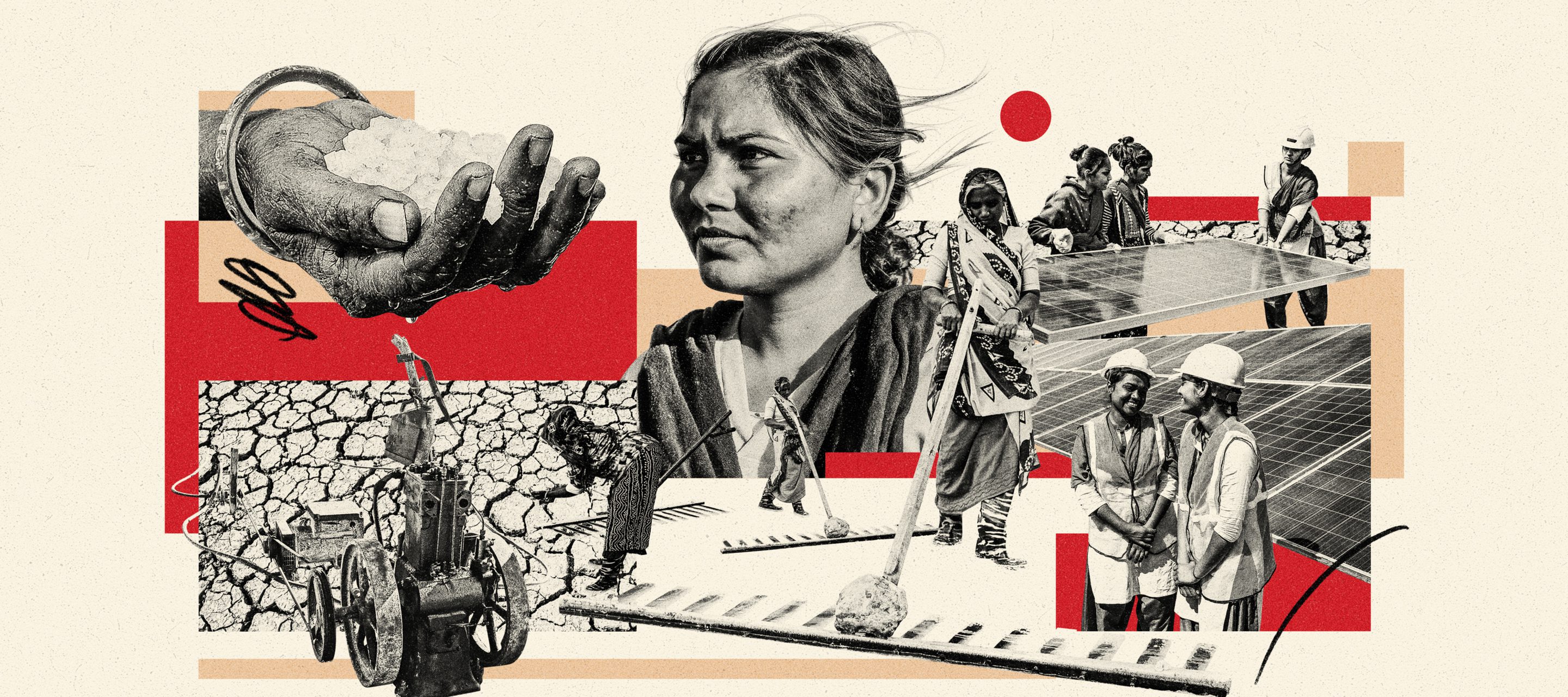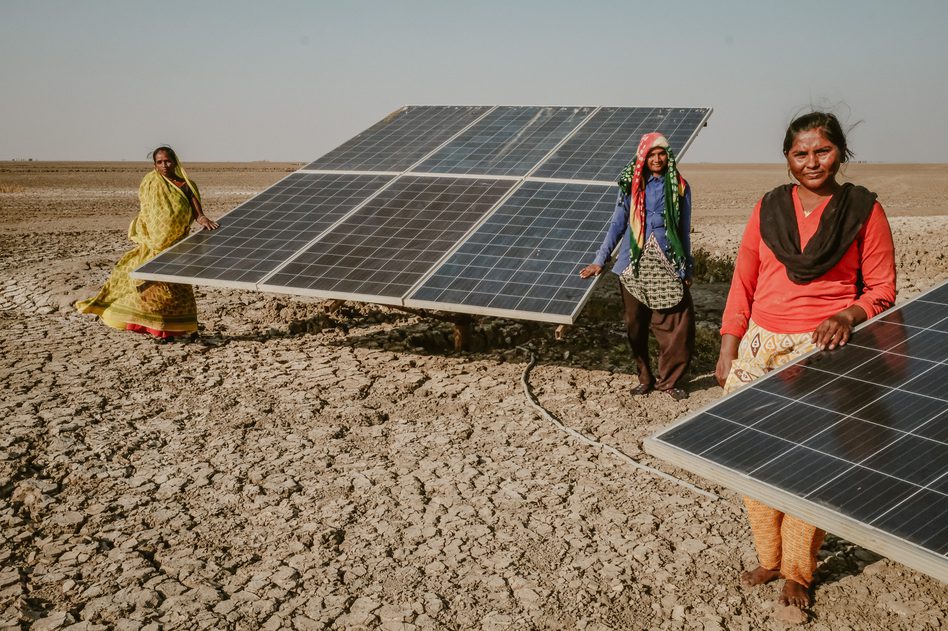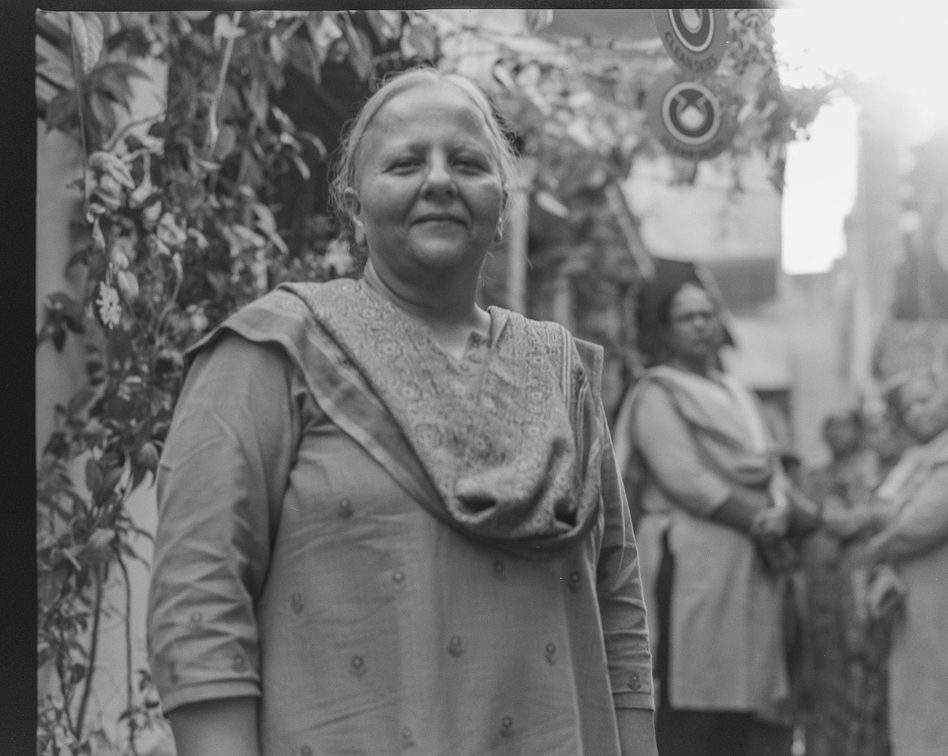Lessons from India's salt farmers offers key to unlocking green skills in the world's informal economies
26 June 2025

In our second deep-dive story, IHRB's JUST Stories initiative explores how India’s largest informal workers’ union partnered with female salt farmers to turn a transition away from fossil fuels into a transition of financial, social and political power.
JUST Stories, a just transition storytelling project, has launched its second deep-dive feature today.
‘‘Agents of green transition’: Gujarat’s women salt farmers signal a cleaner, fairer future for informal workers’ is a multimedia feature by freelance net zero journalist and photographer Oliver Gordon. It follows a group of female informal workers in India as they harness solar power to decarbonise salt, break free from financial exploitation, and launch the country’s first female-run solar farm.

Spearheaded by Self-Employed Women’s Association (SEWA), India’s largest informal workers’ union - with support from business and finance - the story explores how their work to replace diesel-power pumps in salt farming went beyond slashing emissions to boost incomes by up to 600% and train women in the green skills of the future.
Reema Nanavaty, Director of the Self-Employed Women’s Association (SEWA), said:
“Gandhi chose salt as a symbol for independence because it is a humble commodity produced by the country’s most vulnerable. For too long, Agariya salt farmers have found themselves in a diesel debt and financial exploitation cycle - until the transformative introduction of solar pumps.
“What began as a way to cut diesel costs has evolved into a new economic model - rooted in cooperative power - to create sustainable income streams and give economic freedom to the women. We call this a ‘second freedom’.
“This latest JUST Story shares our lessons of co-creating a just transition away from fossil fuels that also supports a deeper shift in power: economic, social and political.”

Reema Nanavaty, Director of the Self-Employed Women’s Association (SEWA)
Haley St. Dennis, Head of Just Transitions at the Institute for Human Rights and Business (IHRB), said:
“Just transitions represent a once in a generation opportunity: to deliver decarbonisation and halt the climate crisis whilst harnessing this opportunity to build a more equitable society. To reach this we have to find, showcase and learn from those already trialling practical solutions.
"This is not utopian, it’s first mover advantage. After all, the markets of the future won’t be powered by fossil fuels, so a transition away from carbon - one that invests in green skills - isn’t just an environmental imperative but an economic one too.
“The story of Reema, SEWA and the Agariya salt farmers shines a spotlight on how informal workers around the world are agents of transition ready to be activated - harnessing transitions to build a cleaner and fairer future."
Mary Robinson, former Irish President and UN Human Rights Commissioner, said:
“This is one of the most stunning examples of a truly just transition. From bullocks to diesel to solar - owned and run by the women themselves. It’s a rare, holistic story - one the rest of the world should be learning from.”
The story has been published in English and in Gujarati under a Creative Commons (CC) Licence by JUST Stories, a two-year global project from the Institute for Human Rights and Business (IHRB) that is finding and telling stories of people working together to advance just transitions.
Today’s publication follows the February 2025 launch of the first deep-dive feature in the JUST Stories series. ‘Collie: A blueprint for the world’s eight million coal workers?’ told the powerful story of Collie, a coal town in Western Australia where workers, business and government are co-designing their future away from fossil fuels.
Read the full story at JustStories.org
For media enquiries, please contact Emma Parrott, Media Manager: emma.parrott@ihrb.org.



